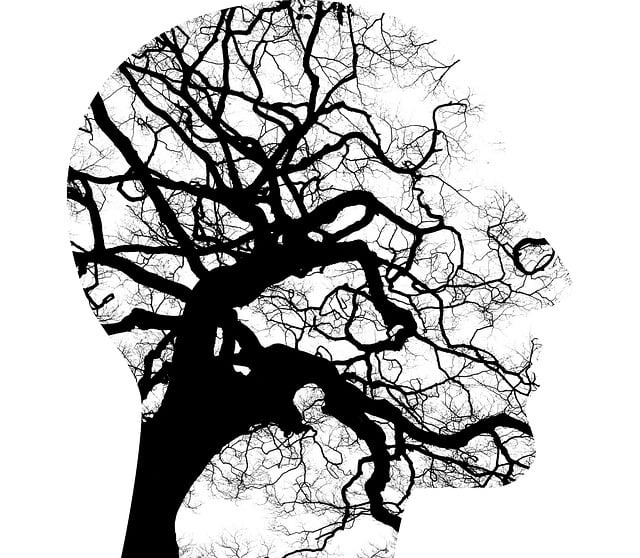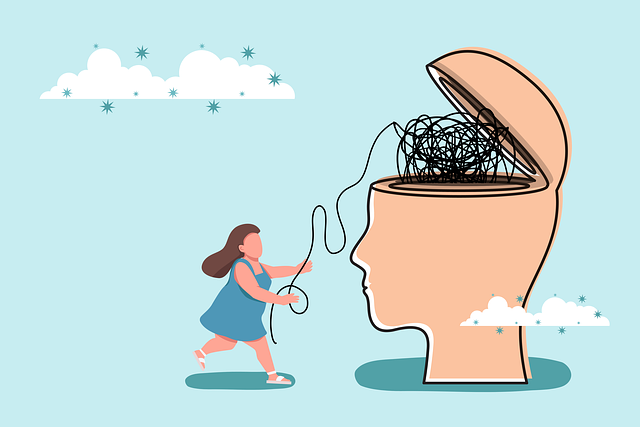Social Skills Training (SST) is an effective, evidence-based therapy for Denver residents struggling with panic disorder and anxiety attacks. Through role-playing, crisis intervention, mental wellness journaling, mindfulness, group therapy, cognitive behavioral therapy (CBT), active listening, assertiveness training, and de-escalation techniques, SST equips individuals with practical strategies, emotional resilience, and improved communication skills to confidently navigate social situations, manage triggers, and lead more fulfilling lives in Denver and beyond. This holistic approach not only reduces symptoms of panic disorder but also fosters community support, advocates for mental health awareness, and enhances overall mental well-being.
Social skills training is a powerful tool in managing mental health conditions, especially anxiety disorders like Denver Panic Disorder. This article explores how structured programs can help individuals overcome social challenges and reduce symptoms of anxiety attacks. We delve into the benefits of group therapy environments and provide strategies to build confidence and resilience in social situations. By understanding these approaches, individuals with Denver Panic Disorder can navigate social interactions with greater ease and improved mental well-being.
- Understanding Social Skills Training for Mental Health
- Denver Panic Disorder: A Focus on Anxiety Attacks
- The Impact of Group Therapy Environments
- Strategies for Building Social Confidence and Resilience
Understanding Social Skills Training for Mental Health

Social Skills Training (SST) is a specialized therapeutic approach designed to help individuals with mental health conditions, such as panic disorder and anxiety attacks, navigate social situations with greater confidence and ease. This evidence-based method focuses on teaching practical strategies and building inner strength to manage and overcome social challenges. By participating in SST, Denver residents struggling with anxiety can learn effective communication techniques, improve their emotional regulation skills, and develop a robust self-care routine for better mental health.
The process often involves role-playing scenarios to simulate real-life interactions, providing crisis intervention guidance tailored to each person’s unique needs. Through this hands-on learning experience, individuals gain the confidence to initiate conversations, express themselves authentically, and respond appropriately in various social contexts. Ultimately, SST empowers those with panic disorder and anxiety to foster meaningful connections, enhance their overall well-being, and lead more fulfilling lives in Denver and beyond.
Denver Panic Disorder: A Focus on Anxiety Attacks

Many individuals suffering from Denver Panic Disorder experience frequent and intense anxiety attacks, which can significantly impact their daily lives. Therapy plays a pivotal role in managing this condition, offering specialized techniques to confront and overcome these overwhelming episodes. Through tailored guidance, patients learn effective strategies to recognize triggers, manage symptoms, and regain control during panic episodes.
One therapeutic approach that has proven beneficial is the integration of mental wellness journaling exercises, which foster self-awareness and emotional regulation. By documenting their experiences, individuals can identify patterns, track progress, and gain valuable insights into their anxiety responses. Additionally, mindfulness techniques and mood management strategies taught in therapy empower people with Denver Panic Disorder to proactively navigate triggers, fostering a sense of calm and resilience.
The Impact of Group Therapy Environments

Group therapy environments play a pivotal role in social skills training for individuals managing mental health conditions, especially those dealing with panic disorder and anxiety attacks in Denver. These settings foster a unique sense of community, where members support and learn from one another, breaking down feelings of isolation often associated with mental health struggles. The collective experience allows participants to recognize they are not alone in their challenges, cultivating empathy and reducing stigma.
In the context of Denver panic disorder and anxiety attacks therapy, group settings provide a safe space for practicing social interactions without the pressures of one-on-one sessions. Through guided exercises and discussions, individuals learn effective stress management techniques, such as compassion cultivation practices, which have been shown to improve mental health outcomes. This collaborative approach not only enhances coping strategies but also encourages advocacy—participants may gain insights into Mental Health Policy Analysis and Advocacy, empowering them to promote understanding and better support for mental health conditions in their communities.
Strategies for Building Social Confidence and Resilience

Building social confidence is a significant step in managing mental health conditions like Denver Panic Disorder and Anxiety Attacks Therapy. It involves learning to navigate social situations with ease and resilience, which can be challenging for those struggling with anxiety or depression. Therapists play a pivotal role in equipping individuals with effective strategies to enhance self-esteem and reduce symptoms of distress. Techniques such as cognitive behavioral therapy (CBT) teach individuals to challenge negative thoughts and replace them with more realistic, positive ones, fostering better social interactions.
Moreover, training in conflict resolution techniques can empower people to navigate difficult conversations and build stronger relationships. This includes learning active listening skills, assertiveness, and de-escalation strategies. By practicing these skills in a safe environment, individuals gain confidence in their ability to handle social challenges, leading to improved mental well-being. Self-esteem improvement is also a key focus; encouraging positive self-talk and recognizing personal strengths helps individuals feel more at ease in social settings, thereby promoting better overall mental health management.
Social skills training, particularly in group therapy settings, offers a promising approach for managing mental health conditions like Denver panic disorder and anxiety attacks. By fostering a supportive environment, individuals can develop essential social confidence and resilience, enhancing their ability to navigate social situations with reduced anxiety. This holistic method not only complements traditional therapy but also empowers folks to build a stronger support network, ultimately improving their overall well-being.














